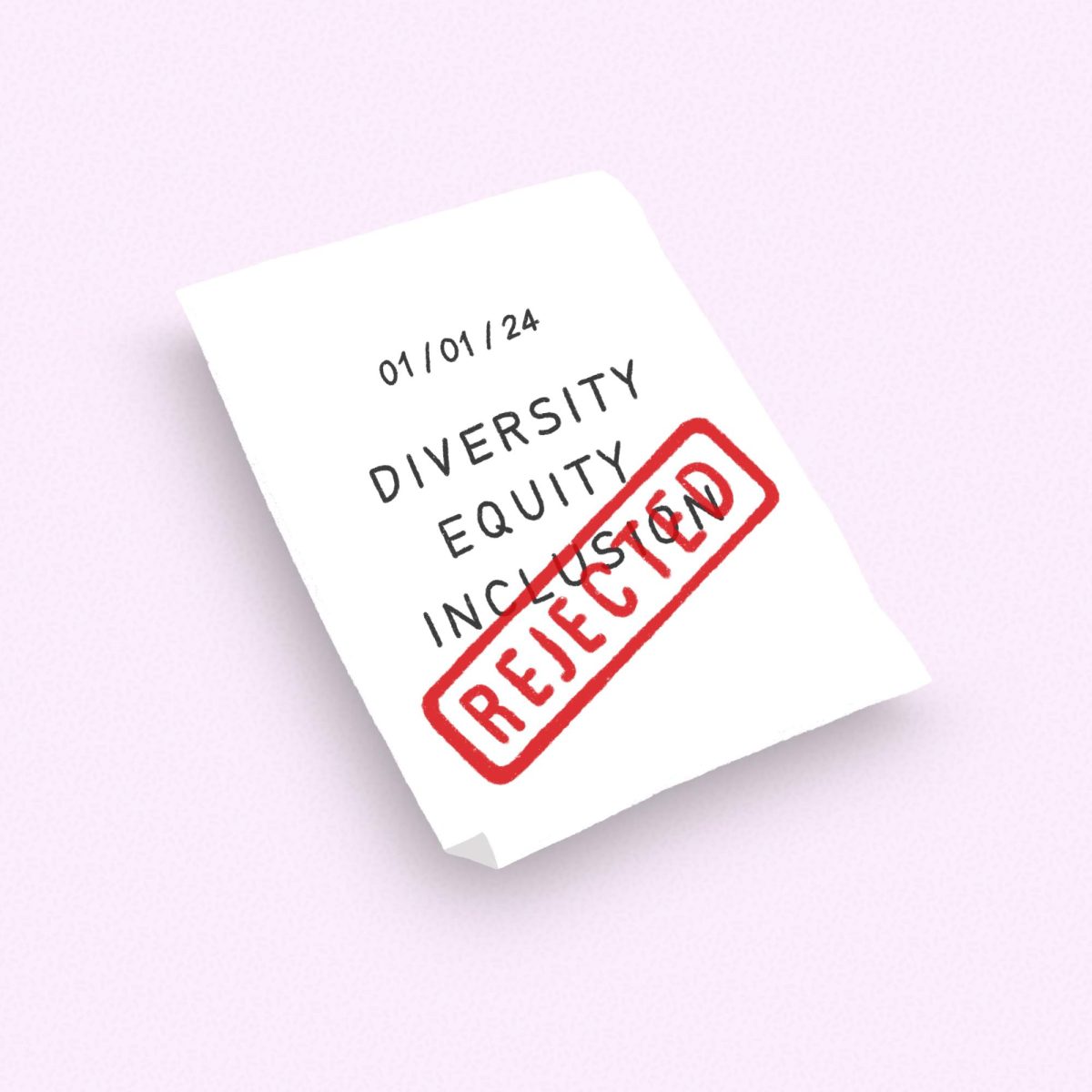Texas Republicans are forging ahead in their ultimate plan to silence places of higher education. This landmark has come in the passing of Senate Bill 17. SB 17 seeks, by its own verbiage, to eliminate diversity, equity and inclusion offices across all state-funded colleges and universities. The bill will become law on Jan. 1. If you have paid any attention to local news for the past few years, this should come as no shock. What may surprise you is Dallas College’s seemingly cold and calculated response via its guidance statement on the bill.
On Oct. 30, the Dallas College Office of the General Counsel sent an email titled “Guidance Regarding the Implementation of SB17” to all Dallas College employees. Attached was a link to a post with the same name on Dallas College’s Microsoft Sharepoint page. The post was intended to address frequently asked questions on SB 17.
This is hardly a unique scenario. Similar, if not nearly identical, statements have been published by most Texas colleges and universities in the past month. However, what stuck out to me while reading through Dallas College’s statement was a general coldness.
Part of the introductory statement reads: “SB17 seeks to ensure that a public institution of higher education does not establish or maintain a ‘diversity, equity, and inclusion office,’ or engage in certain prohibited practices and activities, and requires the Dallas College Board of Trustees to annually certify the College’s compliance to the Legislature and the Texas Higher Education Coordinating Board. Accordingly, the College will undertake to make any administrative changes deemed necessary under the new law while implementing communication strategies and monitoring practices designed to support compliance.”
I understand there must be some formality when addressing these issues, yet I cannot help but look to other universities and colleges and their statements. Most of these institutions, before laying out the new compliance rules, provided a reassuring statement.
Here is The University of Texas at Austin’s version: “The University of Texas System (UT System) is developing guidance, including the following FAQs, to assist institutions with implementing the bill’s requirements. These FAQs will be updated as needed. UT System and UT Austin remain committed to supporting our community members who bring a variety of perspectives and experiences and come to our institutions from across the state and around the world.”
The University of Texas has an even more uplifting statement to give. It reads: “As you may know, the Texas State Legislature recently passed Senate Bill 17, which was signed into law and prohibits public institutions of higher education from maintaining diversity, equity, and inclusion offices, and related activities. Our leadership team has been working hard to make sure we continue to support our diverse student body, faculty, and staff in our values-based environment.” Both statements go on to address the frequently asked questions in a very human way, with no lack of clarity and transparency.
What is Dallas College’s reassuring statement on SB 17? There is only one passage within the mass email which can be interpreted as approaching reassuring. It reads: “It is important to note, however, that nothing in SB17 alters the College’s existing obligations under federal and state law, including the anti-discrimination requirements of Title VI and Title VII of the Civil Rights Act of 1964, Title IX of the Education Amendments of 1972, and the Equal Protection Clause of the 14th Amendment. Therefore, the College must and will continue to ensure that its programs and activities are open and available to all persons on a non-discriminatory basis.”
This statement contains no reassurance of Dallas College’s continued support, just an incredibly vague statement of obligation.
This is currently the only statement on SB 17 released by Dallas College. The guidelines in the statement are full of empty promises and non-answers.
I cannot entirely blame Dallas College for this, as SB 17 itself was intentionally written to be as vague as possible.
I simply wish Dallas College would have taken the time to consider its wording more carefully. We are talking about a state law with the potential to cost Dallas College employees their jobs if their positions are in offices determined to be DEI. This should merit more care and consideration.
Murky statements are not Dallas College’s only problem. For this piece, I reached out to multiple Brookhaven Campus employees who are a part of offices that will undoubtedly be affected by SB 17. All these employees were ready and willing to speak to me, only to be told by their supervisors they could not. They were informed they must not speak on behalf of Dallas College.
I was directed up the chain of command, where time and again, I was met with the same answer. Eventually, I emailed the Office of General Counsel on Nov. 8. They responded on Nov. 15, asking me to email them any questions I had, which I sent later that day. As of this publication, I have yet to receive any response from them. I can appreciate the fact this is a serious topic, and the college would want qualified individuals to speak on the matter.
However, if the college knew this would be their policy on communications regarding SB 17, it would seem even more prudent to provide clear, concise and human communication right out the gate. Instead, Dallas College employees are left with one robotic statement and little else.
Where is the care? Where is the sense of community? We are a community college. We are supposed to provide a more down-to-earth and personal environment. So why do our official communications come off as so stiff and corporate?
This is the opposite of what we need right now. As I stated before, Texas Republicans are in a full-blown war against higher education. In times like these, our institutions should be rallying behind us or at the very least providing some level of reassurance to their students, staff and faculty. Emotionless statements such as Dallas College’s paint the issue not as the dire situation it is, but rather as a simple legal matter that cannot be helped.








